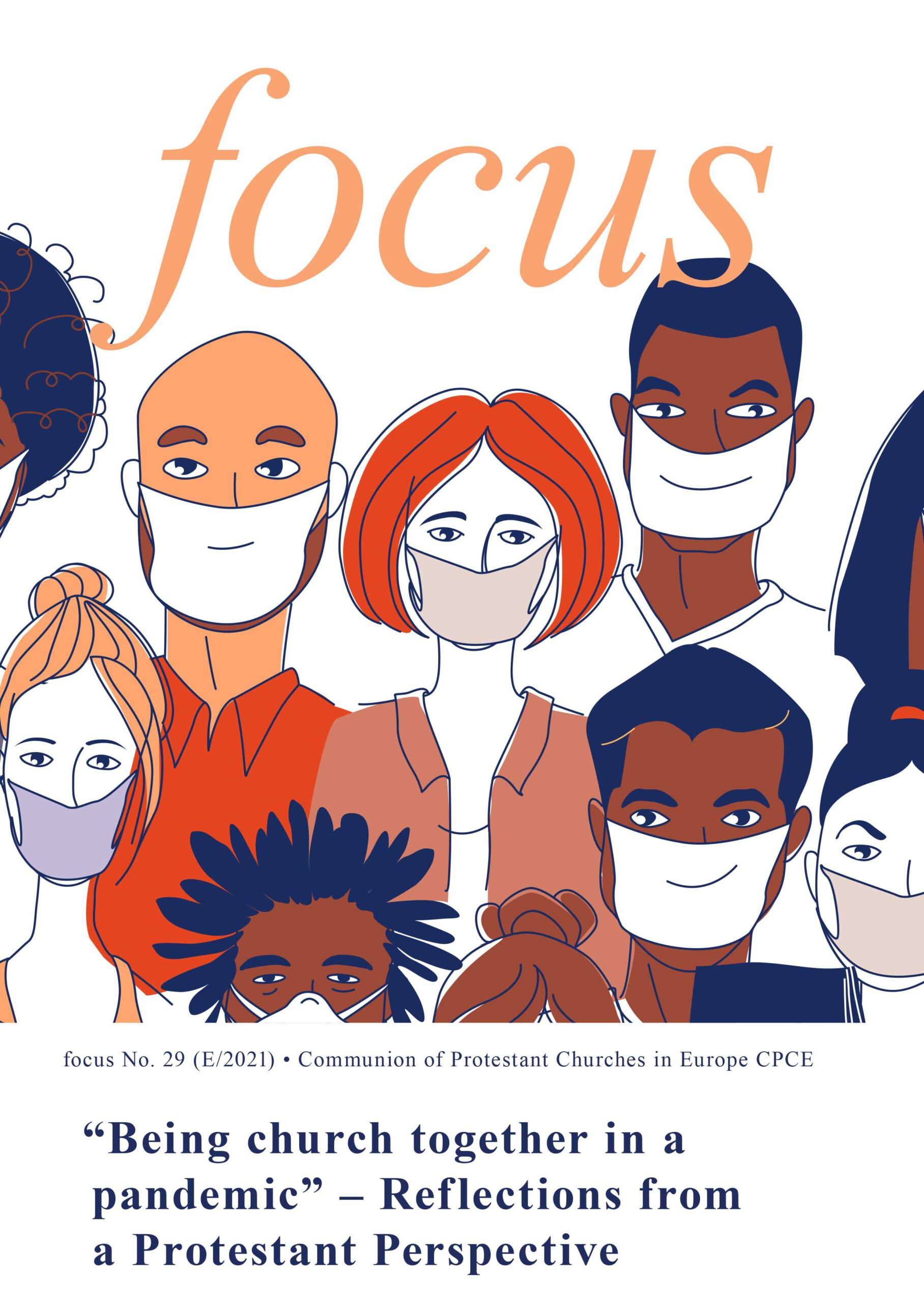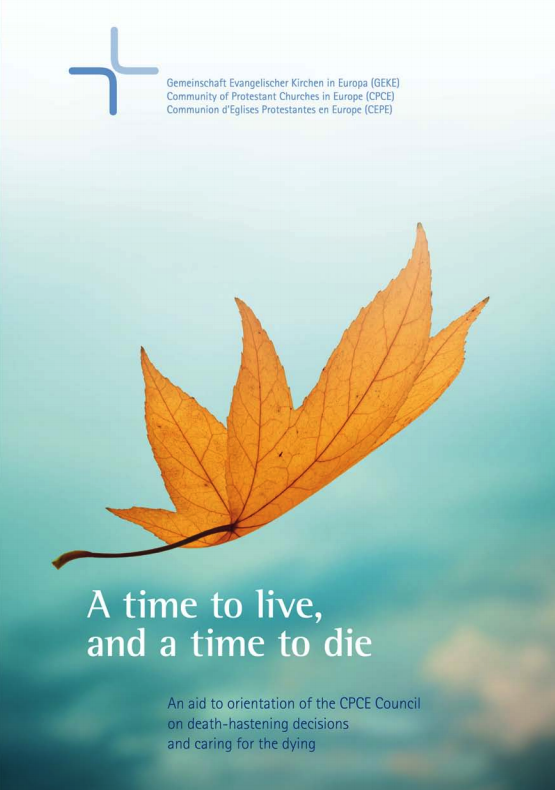Ethics
The Community of Protestant Churches in Europe is to be put in the position of bearing more prompt and prominent witness than hitherto in current important questions of politics, society and the ecumene, and especially of developing the presence of the Protestant churches at a European level. Thus the 5th General Assembly of the LCF in Belfast in 2001 established the task in social ethics. The 6th General Assembly of the CPCE in Budapest in September 2006 added that the representation of a “Protestant voice in Europe” and a resolute appearance of the church over against the political institutions of Europe are particularly important and should be promoted further. In addition the CPCE has called into being an Advisory Board on Ethics.

Being church together in a pandemic
This text offers guidance from a Protestant perspective on ethical issues arising from the corona pandemic or accentuated under these conditions. It is directed at church experts on socio-ethical issues, churches’ officers addressing social responsibility, decision-makers affected (or governed) by ethical considerations in churches and institutions and anyone interested in the questions facing Protestant churches and their attempts to find answers in response to the pandemic.
The executive summary at the start provides an overview of the content, with examples from practice in the member churches of the CPCE completing the picture. The CPCE unites churches in both majority and minority situations. The topics and examples presented are intended to demonstrate how churches can face their mission of being the salt of the earth and the light of the world in their particular setting.
There are suggestions and questions to help you engage with the text or for leading discussions in committees, congregations or offices. The nature of the pandemic only allows for interim reflection at this point in time. It goes without saying that the Protestant churches in Europe will continue to discuss the developments and effects of the corona pandemic intensively. Now it is the moment for us to remain patient.
A Guide to the Ethics of Reproductive Medicine
The progress of reproductive medicine and its possibilities have raised hopes and expectations as well as concerns in our societies and churches in recent decades. And the outcome of the possible developments cannot be foreseen yet. The CPCE believes that the time has come to identify the mutual Protestant reasoning in this discussion.
The CPCE is aware that the medical technological possibilities will progress further. The Guide is not the final word. But it offers a fundamental and manifold guide for a common Protestant orientation at the European level. It invites and encourages the Member Churches to work further on these questions in their specific contexts.
We are very much looking forward to further developments in this field, which this work will hopefully prompt.


A time to live and a time to die
“A time to live and a time to die“ is the title of an aid to orientation on medically assisted death and aid to suicide. The study is the fruit of an intensive process of consultation between 105 CPCE churches in 30 countries on the basis of a text by the CPCE special group on ethics.
With the document presented in summer 2011 the protestant churches in Europe contribute their position to the discussions about a worthy approach to the end of life.
The 104 page brochure discusses fundamental questions of dying in the social, clinical and juridical context. It asks from theological and ethical perspective: What is human life? Where does our moral responsibility lie? How sensitive are we to the wishes of the patient?
Here the aid to orientation takes up such central questions of medical ethics as the termination of life-extending measures, palliative care, assisted dying and suicide assistance.
The study emphasizes the necessity to improve the accompanying social, medical and caring conditions for a worthy life and dying.
These include the extension and development of hospices and the advancement of palliative care in theory and practice.
